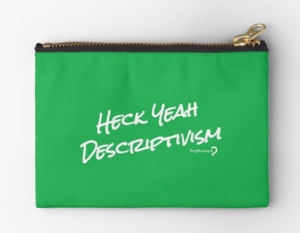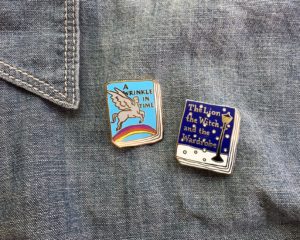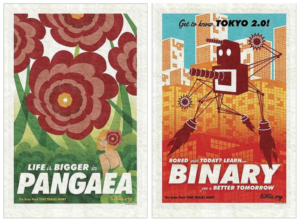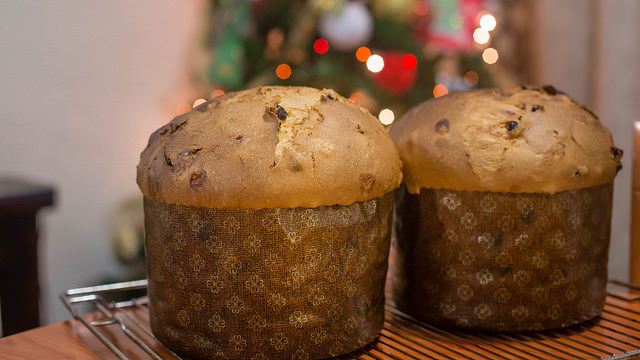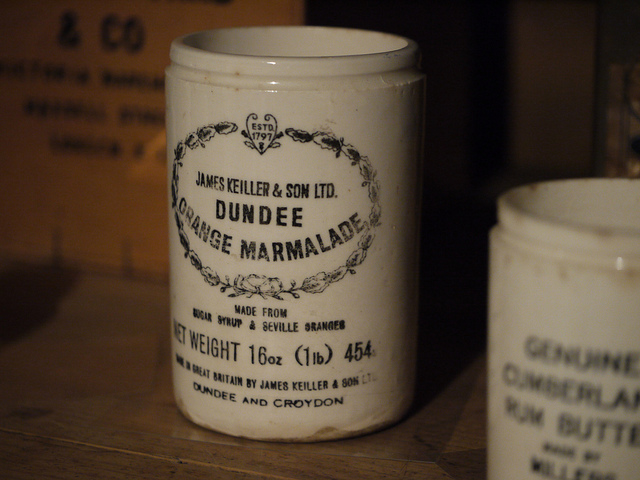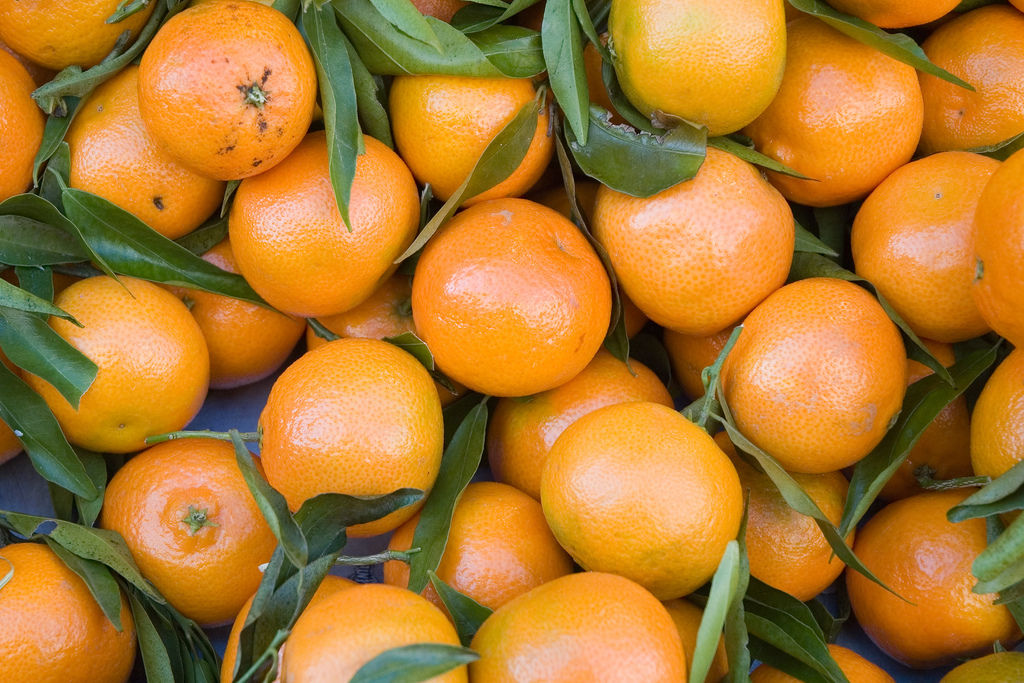
Photo by pasukaru76
It’s that time of year when we’re all running around getting last minute gifts for our loved ones, not-so-loved ones, co-workers, the mailman, the dog walker, the babysitter, and – exhausted yet?
Take a break and have some fun with 10 of our favorite words about gifts, tips, and bribes.
amatorio
“According to its decoration, this ‘ongaresca,’ or plate on a foot, represents what was known as an ‘amatorio,’ love gift. The hands clasped over flame indicate an acceptance and betrothal. Above the hands is a heart pierced with an arrow.”
Bulletin of the Art Institute of Chicago, January 1916
An amatorio is “a decorated vase, dish, bowl, or plate, intended or suitable for a love-gift.” The word comes from the Latin amare, “to love.”
The Ars armatoria, or The Art of Love, are a series of instructional books by Ovid, an ancient Roman poet. The books teach basic “male and female relationship skills and techniques.”
baksheesh
“The two boys were sent away happy, with a generous baksheesh or present, and the next day Kitty’s father sought out the kind-hearted jewel merchant and bought many a gem from his choice collection.”
St. Nicholas Magazine for Boys and Girls, V. 5, April 1878
A baksheesh is “a gratuity, tip, or bribe paid to expedite service, especially in some Near Eastern countries.” The word came into English in the 17th century, according to the Oxford English Dictionary (OED), and comes from the Persian word for “present.” Also bakshish.
cumshaw
“This the mafoo does with great pleasure, as, apart from the keen interest he takes in racing. . .it is an understood thing that he will receive a good cumshaw from his master for each race that his stable wins.”
Oliver G. Ready, Life and Sport in China, 1904
A cumshaw is “a present of any kind.” The word comes from Amoy, a Chinese Hokkien dialect now known as the Xiamen dialect. Cumshaw entered English in the 19th century, says the OED, and is an alteration of kam-sia, “a phrase of thanks by beggars.”
douceur
“A friend of mine, on leaving an hotel at Niagara, offered a douceur in the shape of half a dollar to one of [these chambermaids], but she drew herself up, and proudly replied, ‘American ladies do not receive money from gentlemen.’”
Isabella Bird, The Englishwoman in America, 1856
The word douceur can refer to “sweetness or mildness of manner”; “a kind or agreeable remark; a compliment”; or “a conciliatory offering; a present or gift; a reward; a bribe.”
According to the OED, douceur also refers to “a U.K. tax benefit given as an inducement to a person to sell something of historical value (esp. a work of art) by private treaty to a public collection in the U.K., rather than on the open market.” This sense originated around 1979.
Douceur comes from the Latin dulcis, “sweet,” which also gives us dulcet, “pleasing to the ear.”
étrenne
“I arrived here not long before 1st of January, and, on the morning of that day, a gentle tap at door of the room in which I was drew my attention, and when I desired the person who knocked to walk in, I was surprised by an unexpected visit from the young and pretty daughter of my landlord. . .of which, avec toute la grace francoise, she requested my acceptance as étrenne or New Year’s Gift.”
The European Magazine and London Review, July to December 1823
An étrenne is “a present; properly, a New-Year’s present.” The word is French and ultimately comes from the Latin strena, “favorable omen.”
handsel
“The first Monday of the New-Year has been long known in Scotland, more especially the northern half of the Lowlands, as Hansel-Monday, from the custom among people of the working class of asking or receiving gifts or handsel from their well-to-do neighbors, and from each other, on that day.”
“Auld Hansel-Monday,” Bruce Herald, March 28, 1890
The word handsel can refer to “a gift or token of good fortune or good will; especially, a New-Year’s gift,” as well as “a sale, gift, or delivery which is regarded as the first of a series,” such as “the first money taken in the morning in the way of trade; the first earnings of any one in a new employment or place of business; the first money taken in a shop newly opened; the first present sent to a young woman on her wedding-day, etc.”
The word ultimately comes from the Old Norse handsal, “legal transfer,” where hand means “hand” and sal, “a giving.”
handy-dandy
“It is clear that handy-dandy in this passage means a covert bribe or present, as, for instance, a bag conveyed to the judge’s hand which he was to open at leisure when he would find the contents satisfactory.”
William Langland, The Vision of William Concerning Piers Plowman, 1885
While handy-dandy is another way of saying “handy” or “useful,” an older meaning refers to “a bribe paid secretly,” as well as “a play of children in which something, as a pebble or a coin, is shaken between the hands of one, while another guesses which hand it is retained in.”
The Century Dictionary implies that the bribe sense comes from the children’s game. However, the OED cites a much earlier reference of the bribe meaning, the 14th century, while the first record of the game meaning is from the 16th century.
lagniappe
“We picked up one excellent word – a word worth traveling to New Orleans to get; a nice limber, expressive, handy word — ‘lagniappe.’ They pronounce it lanny-yap. . . .It is the equivalent of the thirteenth roll in a ‘baker’s dozen.’ It is something thrown in, gratis, for good measure.”
Mark Twain, Life on the Mississippi, 1906
A lagniappe is a chiefly Southern Louisiana and Mississippi word that means “a small gift presented by a storeowner to a customer with the customer’s purchase,” or “an extra or unexpected gift or benefit.”
The word is Louisiana French, coming from the American Spanish la ñapa, “the gift,” which may come from the Quechua yapay, “to give more.” The word attests to 1849, according to the Online Etymology Dictionary.
largess
“The deserted farmsteads no longer echo with the sounds of rural revelry; the cheerful log-fires no longer glow in the farmer’s kitchen; the harvest-home song has died away; and ‘largess’ no longer rewards the mummers and the morris-dancers.”
P.H. Ditchfield, Vanishing England, 1910
Largess is “liberality; generosity,” or “a liberal gift or donation; a present; a bounty bestowed.” The OED says that largess! is “a call for a gift of money, addressed to a person of relatively high position on some special occasion.” The word ultimately comes from the Latin largus, “abundant.” Also largesse.
pourboire
“After that, we came back to the Barriere de l’Etoile, where she gave me a good ‘pourboire‘ and got into a hackney coach, telling me to take the travelling carriage back to the man who lets such carriages in the Cour des Coches, Faubourg Saint-Honore.”
Honore De Balzac, The Lesser Bourgeoisie (The Middle Classes)
Pourboire is “money given as a gratuity; a tip,” and translates literally from the French as “for drinking.” The word came into English around 1788, according to the OED.
prezzie
“Giving VDay gifts to us is super easy. We like cool stuff. The Chumby you got us for our desk at work is the perfect Valentine’s Day prezzie.”
Adam Sachs, “An Open Letter to the Ladies on Valentine’s Day. . .From Some Dudes,” The Huffington Post, February 12, 2009
We promised 10 words but here’s an extra, a lexical lagniappe. Prezzie, a shortened form of present, is an alteration of the British English slang word, pressie. According to the OED, pressie originated in the 1930s. An earlier alteration is prez, which in American English now more commonly refers to a president. “Accept my little pres.” James Joyce, Ulysses.
[Photo: CC BY 2.0 by pasukaru76]
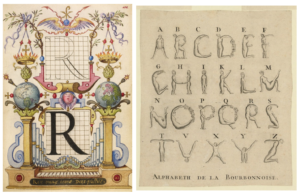
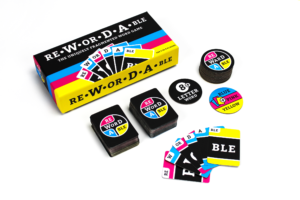
 Get them while you can, as we won’t be reprinting these!
Get them while you can, as we won’t be reprinting these!